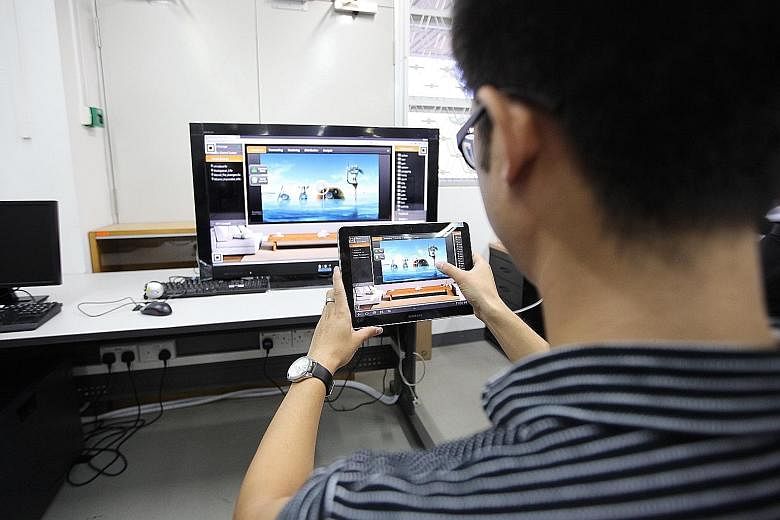Technology positions such as those for software, Web and multimedia developers and systems analysts were among the hardest to fill last year, according to the latest Ministry of Manpower (MOM) report.
About two-thirds of the openings for software, Web and multimedia developers could not be filled by Singaporeans or permanent residents. Consequently, more than 20 per cent of the vacancies could not be filled for six months or more. Such jobs were among the top 10 professional, managerial, executive and technical (PMET) positions left vacant for so long.
There were also no Singaporeans or permanent residents to fill more than 40 per cent of the systems analyst posts.
There were 640 vacancies for software, Web and multimedia developers, and 510 vacancies for systems analysts as of last September. This was down from 690 and 530 vacancies, respectively, the previous year as economic conditions softened, MOM said recently.
All in all, companies reported 60,000 vacancies in September last year, down 11 per cent from 67,400 in 2014.
In PMET jobs, nine out of 10 posts for assistant nurses went unfilled for six months or more.

MOM said the biggest hurdle to filling vacancies for software, Web and multimedia developers and systems analysts was the lack of necessary work experience and specialised skills.
Human resource specialists say this is not a new problem.
Mr David Leong, director of PeopleWorldwideConsulting, said that the gap is created when qualified developers do not take up development jobs.
"Singaporeans think it is a low-level job, much preferring project management positions," he said.
This sort of thinking has not changed in the past few years, he said, adding that applications for software, Web and multimedia developer jobs come mostly from India, the Philippines and Myanmar.
A combination of long hours and a constant need to upgrade one's skills in the fast-paced tech industry has made tech jobs less appealing than those in other sectors, said Mr Lee Chew Chiat, consulting firm Deloitte South-east Asia's public sector industry leader.
"Unfortunately, some industries such as banking and finance appear to have faster and higher earning power. (Hence), the tech industry is unable to attract people, unless one is truly passionate," Mr Lee added.
But change seems to be afoot, with a tech start-up community emerging in Singapore and government efforts to promote lifelong learning.
MOM has pledged to step up efforts to help job seekers gain the skills and experience required for PMET jobs. Such efforts will come through the national SkillsFuture programme. It has some 10,000 courses to ensure that employees have the skills employers want.
The Infocomm Development Authority (IDA) has partnered Web development trainer General Assembly to provide individuals planning to make a mid-career switch to the tech sector with the necessary training. IDA also runs other programmes in partnership with tech companies to fast-track fresh graduates into technical specialist roles.
"There will be a lag in supply of talent, but now the blocks are being put in place," said Mr Mark Jansen, technology, infocomm and entertainment leader at PricewaterhouseCoopers Singapore.
Ernst & Young partner Dilys Boey, who is Asean leader for people advisory services, said that IDA's role is important in attracting students and those at mid-career level to obtain the necessary qualifications to join the industry.


